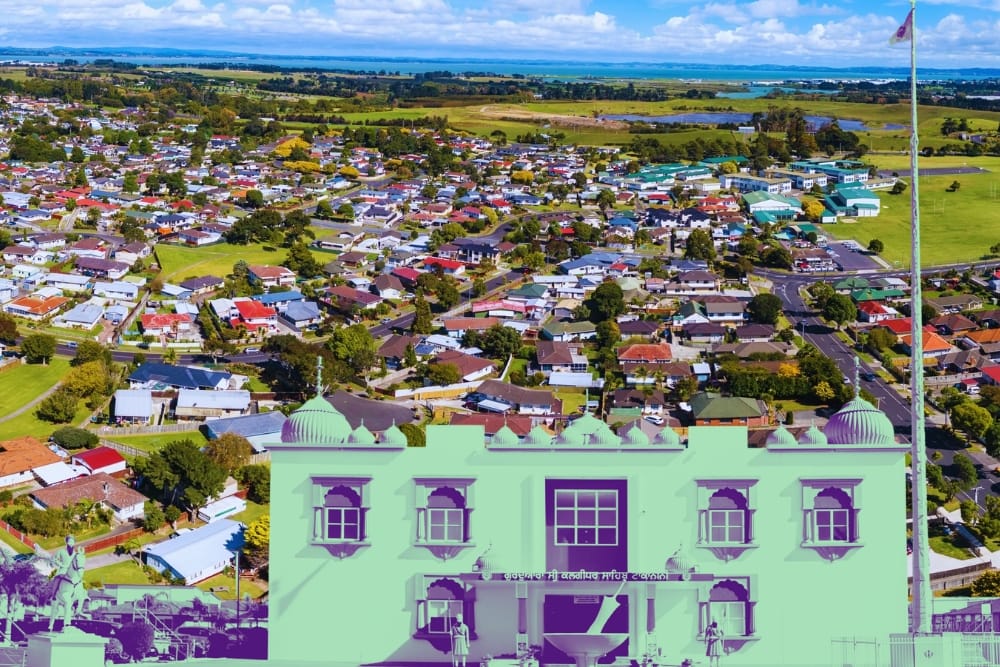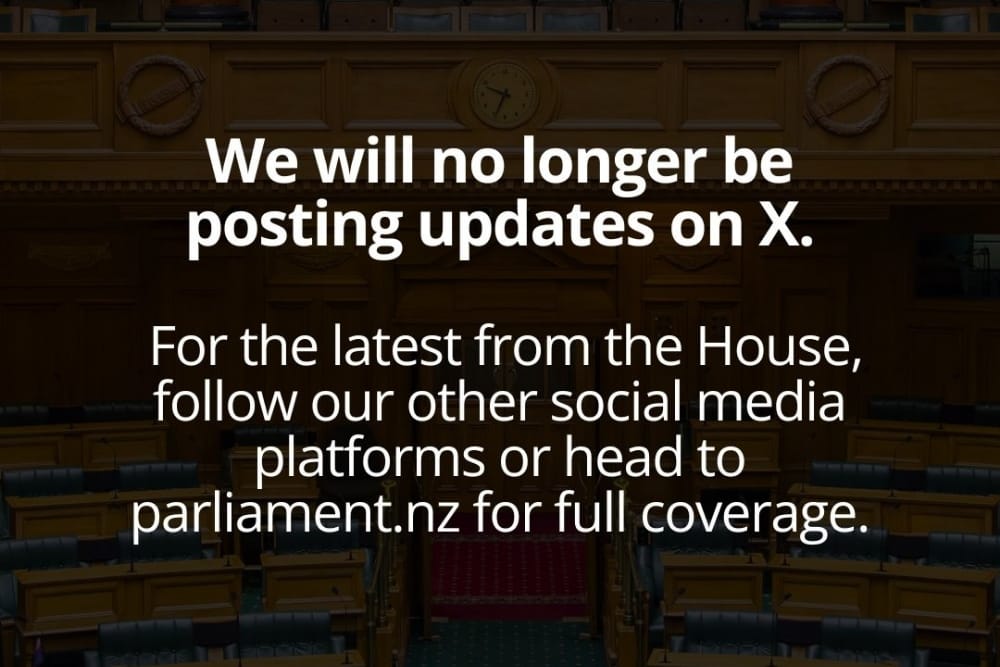In November 2000, former Prime Minister David Lange stated:
Democratic government can accommodate Maori political aspiration in many ways… What it cannot do is acknowledge the existence of a separate sovereignty. As soon as it does that, it isn’t a democracy. We can have a democratic form of government or we can have indigenous sovereignty. They can’t coexist and we can’t have them both.”
He specifically warned about the Treaty of Waitangi:
The treaty is a wonderful stick for activists to beat the rest of us with.” He described it as “a source of alternative authority – the basis of a self-perpetuating industry in academic and legal circles” and he made the point that “many on the left of politics who sympathise with Maori aspiration have identified with the cause of the treaty, either not knowing or not caring that its implications are profoundly undemocratic.”
Twenty-four years later, the battle for democracy is still raging as the Coalition Government defends Parliamentary sovereignty against attack by tribal leaders – along with their allies in the judiciary, the media, academia and State sector – who are using a ‘weaponized’ version of the Treaty to advance Maori sovereignty.
While the Treaty of Waitangi was a contract that established the Queen as our Sovereign, protected private property rights, and gave Maori the same rights and privileges of British citizenship as every other New Zealander, activists have reinvented it as a partnership with the Crown.
This false narrative is being used by tribal leaders to bully and coerce their way into positions of power and control, demanding co-governance and special rights.
As one of the world’s oldest continuous democracies, let’s remind ourselves of how we have reached this point where our democratic rights are being eroded, and control of our society is being incrementally passed into the hands of sovereignty activists.
New Zealand’s journey to democracy was long and slow.
It began in 1769 at a time when European countries were building empires, claiming and colonising lands all over the globe. After a British mission to record the transit of Venus from Tahiti, Captain James Cook was sent south in search of ‘Terra Australis’ – an undiscovered continent thought to lie in the South Pacific.
As a result of instructions to chart any land he discovered and claim it for Great Britain, in the name of His Majesty King George III, Captain Cook took formal possession of New Zealand on 15 November 1769 at Mercury Bay, and New South Wales on 22 August 1770 at Possession Island.
In 1788, when Britain established the colony of New South Wales under the commission of Captain Arthur Phillip as Governor, the jurisdiction not only covered the entire eastern coast of Australia but also New Zealand.
The relationship was formalised in 1839, when Britain officially extended the colony of New South Wales to include New Zealand.
This set the scene for the appointment of Captain William Hobson as Lieutenant Governor, with the mission of obtaining sovereignty over New Zealand for Britain.
The signing of the Treaty of Waitangi by 43 chiefs on 6 February 1840, ceding sovereignty to Queen Victoria, set the scene for a proclamation of British sovereignty over New Zealand by Governor Hobson on 21 May 1840: the North Island on the basis of cession through the Treaty, and South and Stewart Islands by right of discovery.
A charter establishing New Zealand as a separate colony ruled by a Governor representing the Queen was issued on 16 November 1840, stipulating that New Zealand would cease to be part of New South Wales on 1 July 1841.
Growing calls from settlers for self-government led to the British Parliament passing New Zealand’s first Constitution Act in 1846, followed by a second in 1852. This led to our first general election in 1853 and the establishment of our New Zealand Parliament on 24 May 1854.
We remained a British Colony until 1907, when we became a Dominion, then a Realm of the British Commonwealth. Ties with Britain’s Parliament continued until 1986, and with their Courts until 2003.
From the day Captain Cook first set foot on New Zealand soil it was just a matter of time until we became part of the British Empire. The claim by Britain, the annexing to New South Wales, the signing of the Treaty, the proclamation of British sovereignty, the establishment of Parliament and our independence from Britain, have all been part of our journey to democracy and nationhood.
While the Treaty was an important step along the way, that’s all it was. Signing the Treaty was not even necessary for the proclamation of British sovereignty over the South Island.
In other words, while the Treaty is part of our history, it is not our future.
Yet that’s what Maori sovereignty activists are trying to change. They want it to dominate – not the real Treaty, of course, but the weaponized version they claim means the country belongs to them.
Undermining a nation is not easy, and over the years tribal activists have had many attempts.
In 2011, the Maori Party sought to overturn the sovereignty of Parliament through a Constitutional Review that attempted to enshrine their radicalised Treaty and give unelected Judges the power to strike down any laws passed by Parliament that did not advance tribal interests.
Fortunately, the public rejected a new written constitution based on the Treaty so overwhelmingly, that this approach has not been attempted again.
Undeterred, the strategy of the separatists has become more covert.
Under cover of enacting the United Nations Declaration on the Rights of Indigenous People, Jacinda Ardern’s Labour Government introduced He Puapua after the 2020 election to embed tribal rule, without any mandate from the New Zealand public.
Government agencies were infiltrated with new staff hired to promote their bogus Treaty partnership. And the Office of Maori Crown Relations – a public service agency with 200 staff established in collaboration with tribal leaders – drove the agenda to ensure the weaponized Treaty not only dominates the State Sector, but also private sector organisations regulated or funded by government.
To prevent media scrutiny, Labour introduced a $55 million Public Interest Journalism Fund (which the NZ On Air website states will run “until January 2026”) requiring recipients to promote Treaty partnership propaganda.
They also fast-tracked the radicalisation of the justice system through appointments like Justice Joe Williams, the former head of the Maori Land Court and the Waitangi Tribunal, to the Court of Appeal in 2017, then the Supreme Court in 2019.
Along with others on the Supreme Court bench, Justice Williams has been at the forefront of the ‘decolonisation’ movement, not only introducing Maori custom or tikanga into the common law, but proactively promoting its inclusion in legal training. Given the ethereal nature of tikanga, the effect has been to remove certainty, predictability, and clarity from the law, fundamentally subverting the Rule of Law, which is a cornerstone of democracy itself.
Fortunately, some well-regarded legal professionals are now fighting back and calling on Parliament and the Government to take action.
King’s Counsel Gary Judd has taken a complaint against the compulsory teaching of tikanga to law students from 2025 to Parliament’s Regulations Review Committee. He has asked them to disallow this new regulation promoted by the New Zealand Council of Legal Education:
“If a member of this Committee moves a resolution to disallow the regulations, and Parliament adopts the resolution, it will send a signal to the judiciary and to the legal and academic establishments that Parliament is sovereign and that parliament not the judiciary has the constitutional authority to make and unmake the laws of New Zealand.”
And this week’s NZCPR Guest Commentator, Roger Partridge, the Chairman of the New Zealand Initiative and a former Head of Bell Gully, is calling on the Coalition to rein in activist Judges and restore the supremacy of Parliament:
We stand at a constitutional crossroads. Will we allow our Supreme Court to continue its drift towards judicial supremacy? Or will Parliament act to restore the proper balance? The choice is clear. In our democracy, voters – through their elected representatives – should have the final say in shaping our laws, not unaccountable judges. It is time for Parliament to act.”
Roger suggests five ways the Coalition could restrict judicial activism, including:
When judges overstep, Parliament’s most direct response is with targeted legislation. The Government has recently taken this approach with its proposal to ‘clarify’ the Marine and Coastal Area Act. The proposal responds to controversial court rulings that have stretched the meaning of ‘exclusive’ and ‘continuous use’ beyond Parliament’s original intent. It sends a clear message: Parliament is still the supreme lawmaker in New Zealand.”
In this case, the judiciary ignored the key test in the law set by Parliament to ensure tribal claims only succeeded in remote areas of the coastline, arguing instead the inclusion of the Treaty and ‘tikanga’ in the law means Maori should control the coast.
In response, the Coalition has issued an Amendment Bill which they hope to pass by Christmas, tightening up the main test, which requires applicants to have had held their claimed area continuously and “exclusively” since 1840.
However, it appears the Bill will not stop activist judges from continuing to ignore Parliament by attempting to sidestep the new provisions and again open up a pathway for the hundreds of tribal groups that lodged opportunistic claims for customary title to succeed.
An example has emerged in a recently released Court Minute for a case scheduled for early next year. In this instance, two applicants filed claims in 2017 for a Customary Marine Title for the same stretch of coastline, stating that they and they alone had occupied the area “exclusively” and “continuously” since 1840.
The Coalition’s new requirements in the Amendment Bill would likely rule them out since it’s impossible for multiple claimants to occupy the same area “exclusively”.
However, seemingly to get around the new law, the claimants are now planning to “amalgamate their applications” into a single new application in the name of a yet-to-be-decided new entity, seeking a single Customary Marine Title for the area, which they intend to divvy up later.
Amalgamating multiple overlapping applications into new ones not only makes a mockery of the Marine and Coastal Area Act’s strict 6-year deadline for the lodging of claims, but also the Coalition’s efforts to fortify the “exclusive” test in their new law.
Furthermore, if this new claim is allowed, it would send a signal to hundreds of competing applicants to amalgamate their overlapping claims, and leave arguments about dividing up the spoils until after they gain title!
Such a move would render the Coalition’s Amendment Bill ineffective in stopping tribal control of New Zealand’s entire coastline.
This latest development should serve as a warning to the Coalition that not only should amalgamated Marine and Coastal Area Act applications lodged after the 3 April 2017 deadline be specifically ruled out by the Amendment Bill, but given the hundreds of claims in the pipeline, mandatory review periods should be introduced into the legislation to enable on-going checks to ensure judges are delivering what Parliament intended, not creating novel ways to circumvent the intention of the law.
Without a doubt, as David Lange warned, the Maori sovereignty agenda represents a real threat to New Zealand’s future.
Earlier this month the Solicitor-General issued new Prosecution Guidelines for 2025 in which she advised prosecutors to “think carefully” before prosecuting a perpetrator – if they are “Maori”.
The response from Attorney-General Judith Collins was swift: “We’re very clear that all New Zealanders should be treated equally before the law. People need to be held accountable for their actions, regardless of their background.”
While the guidelines were promptly withdrawn, what this incident highlights is the scale of the challenge faced by the Coalition as the defend New Zealand’s democracy from the constant attack of radicals now firmly entrenched within our institutions as well as our political system.
This article was first published at NZCPR. Dr Muriel Newman established NZCPR as a public policy think tank in 2005 after nine years as a Member of Parliament. A former Chamber of Commerce President, her background is in business and education.










